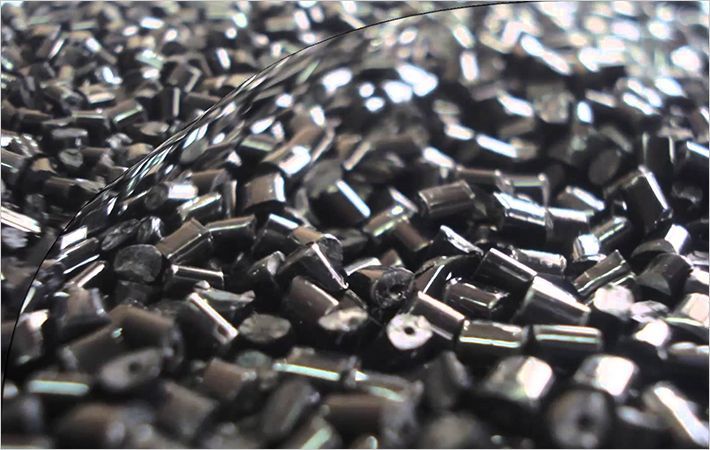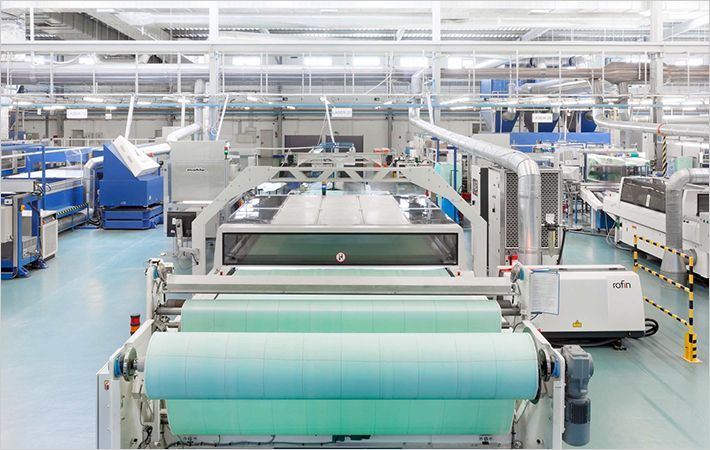The core business of Gebr. Otto is essentially based on three pillars: manufacturing of fine premium yarns for the technical sector and the clothing industry (OTTO Premium Yarns), the development and introduction of sustainable, integrated product concepts for customers in the clothing industry and in the technical sector (Sustainable Concepts) and the manufacturing of hygiene products and class 1 medical products (OTTO-Medicare).
The company division ‘Sustainable Concepts’ has been focusing on a now omnipresent trend since 1998. For the spinning mill this was a reaction to the increased ecological demands of the customers – mainly from the clothing industry but also from the sector of technical textiles. ‘Environmental protection and sustainability are not just lip service for us‘, stresses Andreas Merkel, ’they determine our business activities.
We have firmly embedded this claim into our company philosophy.’ In addition to the product ranges ‘Fair Trade’ and ‘Bio Yarns’ (where Gebr. Otto is one of only a few spinning mills to offer the combination of Fair Trade and organic cotton), this has lead to the creation of innovative products and concepts which have attracted international attention.
The Piumafil yarn developed in 2006 allowed the company to use innovative technologies for spinning a mixture of wild kapok and hand-picked cotton into high-quality premium yarn for the first time. Until then the kapok fibre had been thought to be unsuitable for spinning and was primarily used as a filling material. Kapok is a hollow cellulosic fibre with a length of approx. 2-4 cm. It contains 80% air and is six times lighter than cotton. The kapok fibre has special thermal properties and a silky sheen, which is why it is sometimes referred to as silk cotton or vegetable cashmere.
The natural wax coating of the fibre only allows a low level of moisture absorption – an advantage that promises excellent wearing properties for clothing textiles. The kapok tree is a tropical plant indigenous to Indonesia, Java, Malaysia, West Africa, the Caribbean and northern South America. Kapok does not grow in monocultures such as plantations. It needs the environment of the tropical rainforest and is therefore free from pesticides and fertilisers. Kapok is 100 per cent biodegradable.
Andreas Merkel also focuses on the benefits for the people and the natural environment in the countries of origin: ‘A demand for the fibres from wild kapok trees ensures the livelihood of the local population who harvest these fruit by hand. This in turn prevents deforestation by fire in these areas.’ With this contribution to the protection of the tropical rainforests, the company is an official partner of the nature conservation organisation WWF (World Wide Fund for Nature). Part of the profits from Piumafil go towards the reforestation of the tropical rainforest.
Another innovative product concept is the recot² fibre which was developed in cooperation with Ulm university. The name is a combination of the words ‘recycled’ and ‘cotton’. The power of 2 represents the magnitude of the possible savings with regard to water as a natural resource. The new fibre mix consists of 50% raw cotton and 50% recycled selected production waste or 75% organic raw cotton and 25% recycled cotton. This saves water and significantly reduces the use of pesticides.

